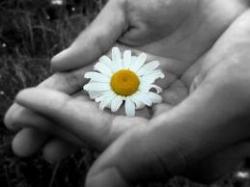Theory and Practice


If we look at what theory is, it’s essentially an abstraction, or representation, of direct experience. It’s a way for us to take our understanding and transmit, through the medium of ideas, the same understanding to another person. Language is such an important innovation, because it allows us to do this.
Because theory is an abstraction or representation, without directly experiencing, or really understanding what these things are pointing to, abstractions can remain just that. We all know people who confuse concepts about reality with reality itself. One need only bring to mind a know-it-all scholar or nerd to see living examples of what happens when we emphasize theory over practice.
The flip side of emphasizing theory over practice, is in emphasizing practice over theory. Many people conclude that all you need to do is practice and you’ll figure out everything by yourself. But how do you understand why you’re practicing or learn to practice?
If you emphasize practice too much you can get what Tibetan meditation master Chogyam Trungpa called “dumb meditators”—people who don’t understand what they’re doing or why. They never really got what they were supposed to be looking for, so they spin out endlessly doing a practice, which leads to something interesting, but not to what was intended.
Another pitfall of leaving out theory is that we find it difficult to integrate the experiences we’ve had into their lives. We have trouble because we are rejecting the importance of the thinking mind. Our complex mental abilities and highly developed brains are what make us distinctly human. Without complex thought it’s unlikely that we’d even be able to ask ourselves the important spiritual questions. Homo sapien is latin for “knowing man” or “wise man.” It can be a disaster if we throw out the “wise” part of our evolutionary heritage.
What’s encouraging is that if we can put these helpful theories into practice, using them as maps to help us find our way, then we get into the business of having direct experiences ourselves. Through doing this we become internal scientists, and can begin to confirm, reject, and even build upon the theories we’ve been handed. Theories are alive and open-ended when we can test their validity. They are not the end point but rather the starting point for an incredible journey.
by Vincent Horn, excerpted from this page.
SEED QUESTIONS FOR REFLECTION: How do you relate to the need for both theory and practice in our lives? Can you share a personal story that illustrates the importance of theory? What motivates you to test the validity of theories in your own life?
Add Your Reflection
10 Past Reflections




On Jan 17, 2017 Cynthia wrote :
I had trouble with this passage. After reading it a few times, I realize I must be one of those "dumb meditators." Feeling, observing, and moving through initial shame, I see it as a jumping-off point to learn more. As a result, I find a very helpful article at tricycle.org titled "Are You Practicing Stupid Meditation?" Much to chew on. Thank you.
Post Your Reply

On Jan 17, 2017 Kate Sutherland wrote :
Post Your Reply

On Jan 17, 2017 Kristin Pedemonti wrote :
Post Your Reply

On Jan 14, 2017 Jagdish P Dave wrote :
Post Your Reply

On Jan 14, 2017 david doane wrote :
Post Your Reply

On Jan 12, 2017 Rajesh wrote :
This passage feels so relevant. As someone who has read a lot of J.Krishnamurti, whose work is considered abstract by many, I know that its easy to go off into abstraction, without the slightest idea of what a particular concept might mean in practice in one's own daily life. In this context, direct experience of what is being communicated is key to learning. Without it, all the theory is just that.
I think a robust theoretical framework is very useful in spiritual endeavors. Given that there are so many teachers and practices out there, without a good understanding of the overall scheme of things, we are either likely to hang on to one practice or view and potentially become pedantic about it. With a robust framework that is malleable, flexible and open, one is free to examine new ideas, teachers and practices that one might come across. In fact, in my experience, the beauty of it is that you being to see the common foundation and threads across a spectrum of teachings.